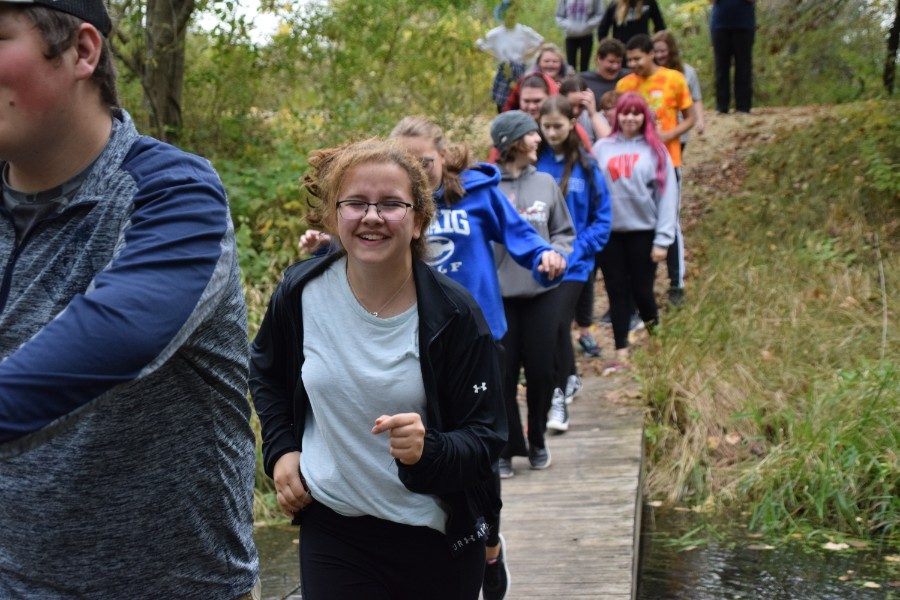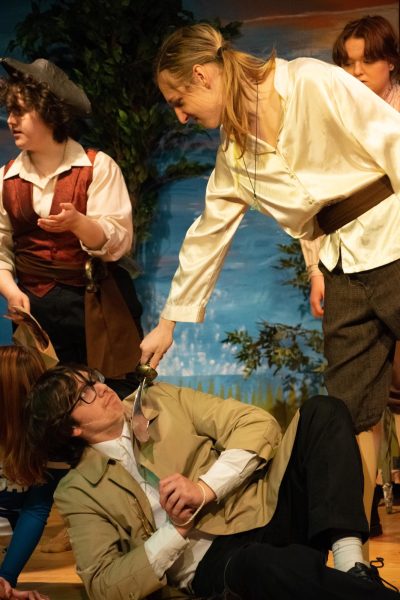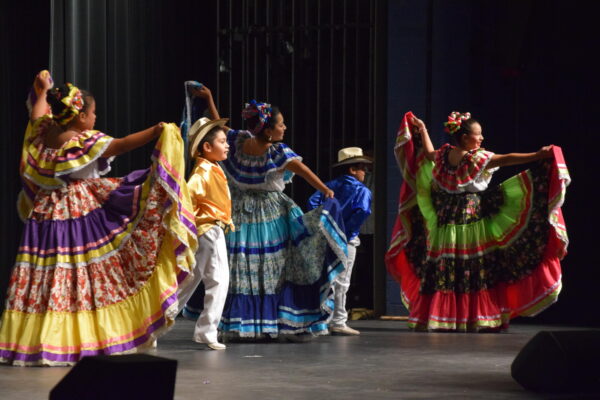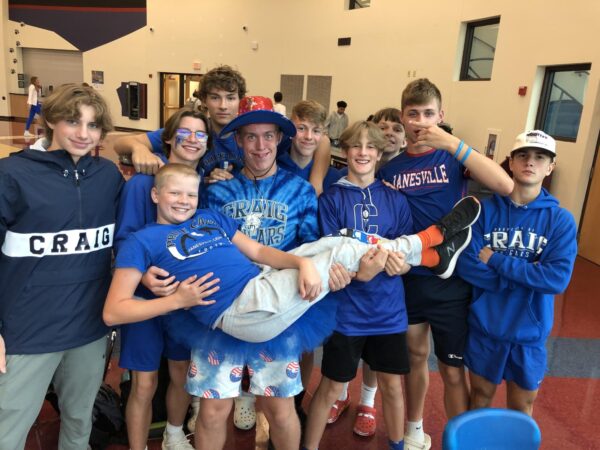FFA Fall Field Trip
Craig’s FFA and agricultural department is known for taking unique field trips, and their fall trip on October 10th was no exception. That’s because it included feeding alpacas, viewing the process of Frito-Lay production, exploring Big Hill Park, and more.
“I never thought that I would have seen the inside of a food factory or pet an alpaca before this trip,” said Katarina Driess.
The 27 students on the trip spent the day exploring four different locations in Beloit: Frito-Lay Inc, Apple Hut, Pacesetter Alpacas, and the Welty Environmental Center.
Katarina Driess said, “I thought it was not only very fun but educational!”
Frito-Lay
After learning the basics of the on-site operations, students took a tour of the factory. During the tour they were shown the process of making Lays, Fritos, Doritos, Cheetos, and more, which involved processing potatoes with AI machinery, cutting of Doritos chips, seasoning of Fritos, and more.
During the tour, students even had the opportunity to taste fresh, warm product directly from the machines. Canyon Schuenke, a senior, said that was his favorite part of the tour.
While at the Frito-Lay factory the students learned about the company’s efforts to be more sustainable through reducing waste, heat loss, energy use, and water use in their factories, as well as reducing carbon emissions in their distribution.
The Frito-Lay factory in Beloit distributes over almost the whole Midwest, meaning a person could take a trip to Mount Rushmore and eat Frito-Lay products made in Beloit.
Students were also told about the large quantity of potatoes used in production. Kaylee Stephan said, “I learned that Frito Lay uses a lot of potatoes a day to make chips.”
Apple Hut
At Apple Hut, students gathered around Lori Jenson, daughter of the founder and part owner of Apple Hut, while she talked about the tasks and struggles that come with running an apple orchard.
Jenson talked about dealing with early winter snows, parasites and diseases, keeping up with new trends in apple flavors, and basic care of the apple trees.
Then students followed Jenson through their apple freezer and into Apple Hut where she showed them the machine that processes their apples, picking out small and unsellable apples.
Apple Hut sells over a dozen varieties of apples as well as pies, caramel apples, apple cinnamon bread, apple cider, cider donuts, honey jams, and more.
Most of the students decided to buy Apple Hut’s fresh cider donuts, a popular choice for many customers.
Pacesetter Alpacas
At the Pacesetter Alpacas farm, students were taught about the suri breed of alpacas which are kept on the farm by the owners, Dennis and Christy Pace.
After listening to a presentation by the owners, students had the opportunity to interact with the rare breed of alpaca. Senior Angelina Doane said, “Feeding the alpacas was so much fun! Although they were shy at first, after we offered food they walked right up to us. They were so cute and surprisingly so soft.”
Suri is one of two breeds of alpaca, but is a minority of the species. The other breed, huacaya, make up the vast majority of alpacas on the planet.
The largest contributing factor to the suri rarity is because of colonization of modern-day Peru, Chile, and Bolivia where the Alpacas originated from. Alpacas were almost wiped out to make room for domesticated European animals that were brought over, even though alpaca fiber is of a higher quality than most other animals.
Though their rarity in the US is because there has been very limited importing to the US, having to go through a rigorous process with long quarantines to ensure the health of the alpacas and native animals. Suri alpacas were only imported 5 times back in the 1990s, with none being imported at other times.
According to the Pacesetter Alpacas website, “There are approximately 12,000 registered suris in the U.S., representing only about 18% of the total U.S. alpaca population.”
Pacesetter Alpacas has discontinued their breeding program as the owners think towards retirement. But they still sell the popular fiber in their on-site store. The fiber has been described as warm, strong, silky, and comparable to fine cashmere.
Welty Environmental Center
Jumping on a wooden bridge over a small creek, students smiled and laughed as they were taken on a hike at Big Hill Park. The hike was led by Aaron Wilson, Program Director of the Welty Environmental Center (WEC).
A specific place the students were shown was where the WEC had brought goats out to the prairie during the summer. The goats helped the WEC battle invasive species concentrated in the prairie by eating those that are hard to touch, such as buckthorn and wild parsnip.
Then the students were taken into the woods to learn a little about moss, fungi, geology, and different studies completed there, such as the observation of an owl nest.
Students enjoyed the opportunity to get outside. Hailey Lippert said, “Going through the woods with the kids and the leader was fun, jumping on the moving bridge was fun and exciting. If I could go again I would go again but with my dog!”

(He, him, his)
Kenneth Forbeck is a seventeen-year-old Senior at Craig High School.
Since starting high school in 2016, he has served as both a reporter...








Diane Morgan • Nov 8, 2019 at 10:12 am
This is a great article and really give the readers a feel for the trip! Thank you for covering the event all allowing others to learn why school field trips are an important part of the curriculum.
adviser • Nov 15, 2019 at 9:18 am
Thank you, Mrs. Morgan! Your classes and FFA group are among the most active in our school, and you participate in many newsworthy events. We are happy to cover all that you do!
David Holmquist, adviser